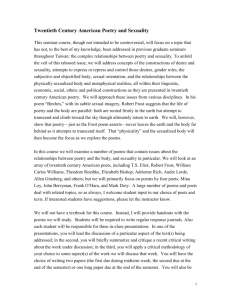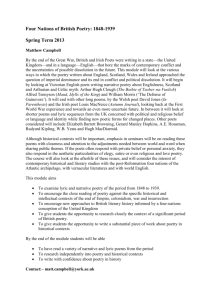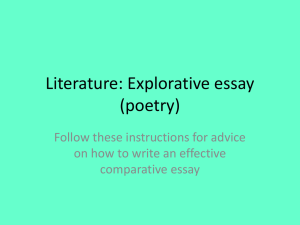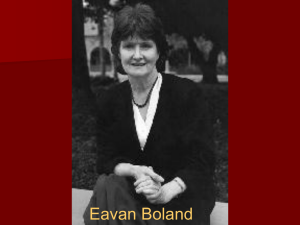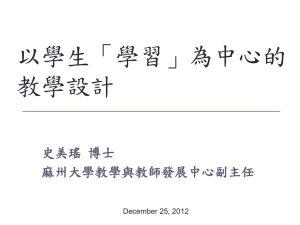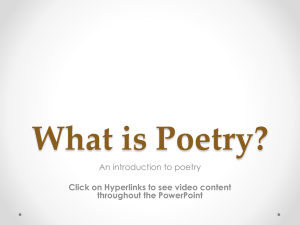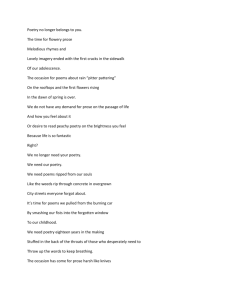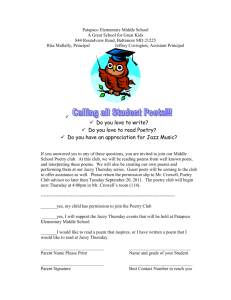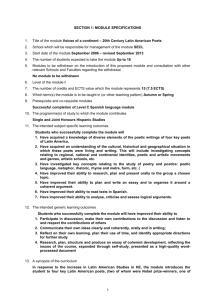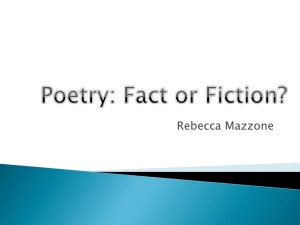Four Nations of British Poetry: 1848
advertisement
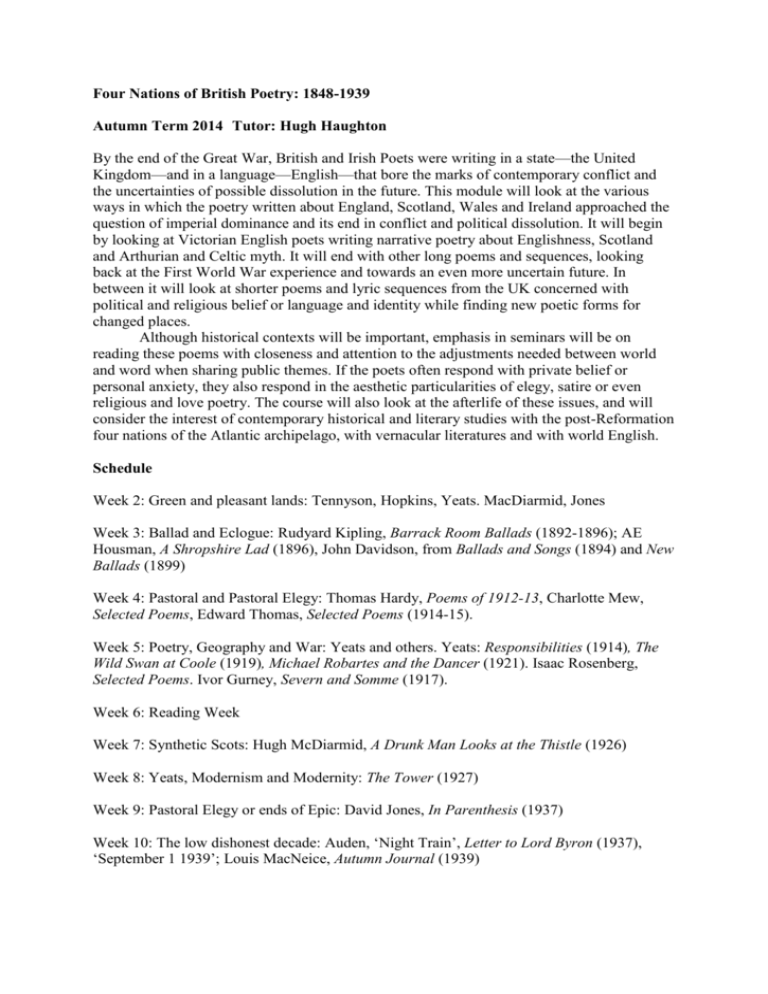
Four Nations of British Poetry: 1848-1939 Autumn Term 2014 Tutor: Hugh Haughton By the end of the Great War, British and Irish Poets were writing in a state—the United Kingdom—and in a language—English—that bore the marks of contemporary conflict and the uncertainties of possible dissolution in the future. This module will look at the various ways in which the poetry written about England, Scotland, Wales and Ireland approached the question of imperial dominance and its end in conflict and political dissolution. It will begin by looking at Victorian English poets writing narrative poetry about Englishness, Scotland and Arthurian and Celtic myth. It will end with other long poems and sequences, looking back at the First World War experience and towards an even more uncertain future. In between it will look at shorter poems and lyric sequences from the UK concerned with political and religious belief or language and identity while finding new poetic forms for changed places. Although historical contexts will be important, emphasis in seminars will be on reading these poems with closeness and attention to the adjustments needed between world and word when sharing public themes. If the poets often respond with private belief or personal anxiety, they also respond in the aesthetic particularities of elegy, satire or even religious and love poetry. The course will also look at the afterlife of these issues, and will consider the interest of contemporary historical and literary studies with the post-Reformation four nations of the Atlantic archipelago, with vernacular literatures and with world English. Schedule Week 2: Green and pleasant lands: Tennyson, Hopkins, Yeats. MacDiarmid, Jones Week 3: Ballad and Eclogue: Rudyard Kipling, Barrack Room Ballads (1892-1896); AE Housman, A Shropshire Lad (1896), John Davidson, from Ballads and Songs (1894) and New Ballads (1899) Week 4: Pastoral and Pastoral Elegy: Thomas Hardy, Poems of 1912-13, Charlotte Mew, Selected Poems, Edward Thomas, Selected Poems (1914-15). Week 5: Poetry, Geography and War: Yeats and others. Yeats: Responsibilities (1914), The Wild Swan at Coole (1919), Michael Robartes and the Dancer (1921). Isaac Rosenberg, Selected Poems. Ivor Gurney, Severn and Somme (1917). Week 6: Reading Week Week 7: Synthetic Scots: Hugh McDiarmid, A Drunk Man Looks at the Thistle (1926) Week 8: Yeats, Modernism and Modernity: The Tower (1927) Week 9: Pastoral Elegy or ends of Epic: David Jones, In Parenthesis (1937) Week 10: The low dishonest decade: Auden, ‘Night Train’, Letter to Lord Byron (1937), ‘September 1 1939’; Louis MacNeice, Autumn Journal (1939) Introductory Critical and Historical Reading Fran Brearton, The Great War in Irish Poetry (OUP, 2003) Robert Crawford, Devolving English Literature (Edinburgh, 2000) Norman Davies, The Isles (Macmillan, 2000) Owen Dudley Edwards, Hugh McDiarmid et al, Celtic Nationalism (1969) Paul Fussell, The Great War in Modern Memory (1975) Matthew Hart, Nations of Nothing but Poetry: Modernism, Transnationalism, and Synthetic Vernacular Writing (OUP, 2010) Matthew Hollis, Now All Roads Lead to France: The Last Years of Edward Thomas (Faber, 2011) Hugh Kearney, The British Isles; A History of Four Nations (CUP, 1989) John Kerrigan, Archipelagic English (OUP, 2008) Declan Kiberd, Inventing Ireland (Vintage, 1997) J.G.A. Pocock, ‘British History: A Plea for New Subject’, The Journal of Modern History, Vol. 47, No. 4 (Dec. 1975). Jahan Ramazani, A Transnational Poetics (Chicago, 2009) Matthew Reynolds, The Realms of Verse (OUP, 2002) Contact:– hugh.haughton@york.ac.uk
